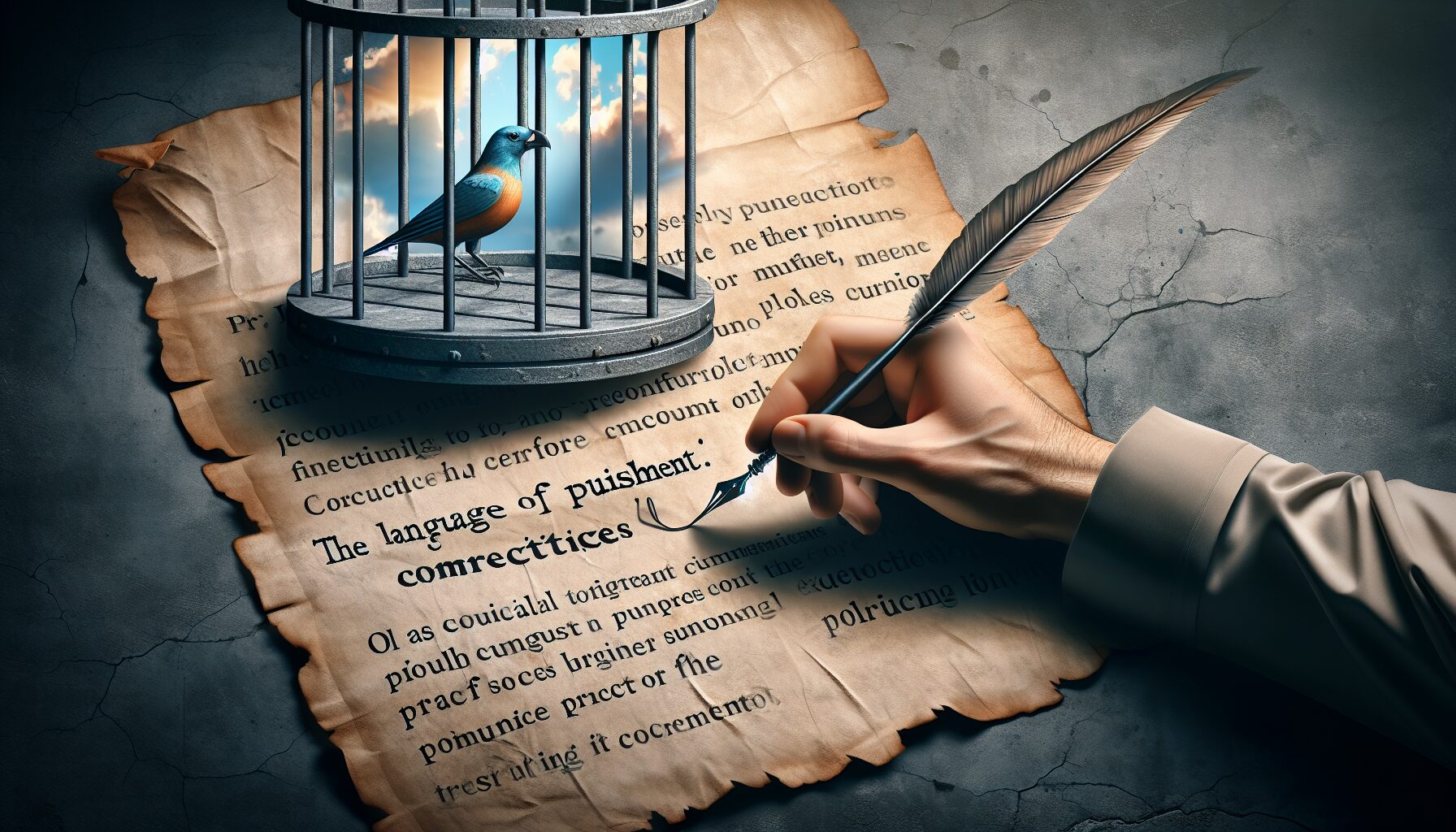Throughout history, the language used around punishment has often served to disguise the cruelty inherent in many correctional practices. This article seeks to explore how the euphemistic terminology around “correction” often masks a darker reality that underpins punitive systems worldwide.
The Semantics of Correction
Words have power. The vocabulary of punishment is no exception, with terminology frequently employed to soften, rationalize, or altogether obscure the harsh realities of penal systems. The use of the term correctional facility instead of prison or penitentiary is a prime example, implying a benevolent goal of reformation and improvement where often there is little more than punishment and confinement.
“Language is a source of misunderstanding.” — Antoine de Saint-Exupéry
Saint-Exupéry’s insight is particularly profound when applied to the language of punishment. Words like rehabilitation and correction suggest a transformative process that in reality, many argue, is a facade for a system primarily focused on retribution and societal control.
Historical Perspectives on Punishment
To understand the evolution of language around punishment, it is useful to look at historical approaches to penal systems:
- Medieval Practices: Historically, punishments were overtly brutal, with practices such as public floggings and executions serving as both punishment and deterrent. These acts were seldom disguised with euphemistic language.
- The Enlightenment Shift: With Enlightenment came a shift towards less violent, but no less punitive, systems. Terminology began to evolve as society grappled with the ideas of penance and reform.
- Modern Era: The 19th and 20th centuries saw the rise of the penitentiary or correctional facility, where the language suggested a focus on penance and personal improvement.
The Reality Behind Euphemistic Language
Despite the softened language, the American penal system, for instance, remains one of the harshest in the world. Prisons are often overcrowded, underfunded, and rife with violence, leading critics to question whether the system is more about punishment than rehabilitation.
“The degree of civilization in a society can be judged by entering its prisons.” — Fyodor Dostoevsky
Dostoevsky’s observation underscores the critical perspective that a society’s treatment of its incarcerated speaks volumes about its values and moral standing. The cruelty underlying the label correctional becomes apparent when examining conditions within these institutions:
- Overcrowding: Facilities often house more inmates than they were designed for, leading to inadequate access to resources and services.
- Solitary Confinement: Despite being termed “administrative segregation,” this practice can have severe psychological effects on inmates.
- Privatization: The rise in private, for-profit prisons incentivizes incarceration rates over rehabilitation outcomes.
Reevaluating Our Approach
In questioning the efficacy of euphemisms in correctional discourse, it becomes necessary to consider alternatives that may bridge the gap between language and practice:
- Restorative Justice: An approach that emphasizes healing for victims and reintegration for offenders, aiming to address the root causes of criminal behavior rather than simply punishing it.
- Educational and Vocational Training: Providing inmates with skills and education to reintegrate into society more successfully.
- Decarceration: Reducing reliance on incarceration, especially for non-violent offenders, and investing in community-based alternatives.
The Power to Change the Narrative
The language of punishment is not just a reflection of practices but also an influencer of policy and perception. By challenging the euphemistic terms commonly used, society can prompt a reevaluation of punishment philosophies, potentially steering towards more humane and effective systems.
Ultimately, the goal should not be to produce a more palatable form of incarceration through language, but to create genuine reform in penal systems across the globe. In the words of civil rights leader Nelson Mandela:
“It is said that no one truly knows a nation until one has been inside its jails. A nation should not be judged by how it treats its highest citizens, but its lowest ones.” — Nelson Mandela
As society moves forward, a critical examination of the language of punishment can serve as a catalyst for true correction—not just in terms and labels, but in the real lives of those it affects.
